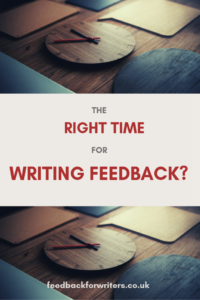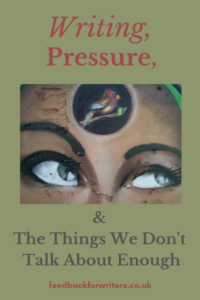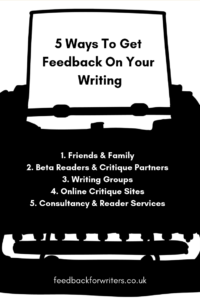 Something that can be hard to remember, especially when we are busy comparing ourselves with others, competing, wondering why we are not Hemingway or whoever, is that NOT EVERY WRITER IS THE SAME.
Something that can be hard to remember, especially when we are busy comparing ourselves with others, competing, wondering why we are not Hemingway or whoever, is that NOT EVERY WRITER IS THE SAME.
We don’t all work in the same ways. We don’t all write the same things. We don’t all use an identical writing process in order to get our best work out. Not every trick or method that works for us will work for everyone else, and vice versa. Nor does it have to.
Not a revelation, huh? Well, you’d think (and btw, if you don’t believe me, check out the Paris Review for hundreds of interviews with famous authors where you can see the vast array of approaches to the writing life and getting work done. Or not).
I’ve been quite surprised at times, to find a certain rigidity in approach, especially on advanced writing courses or in online advice, which can give the impression that there is only One True Way of Working for writers serious about their craft . This in turn leads to unrealistic expectations, can sometimes seem artificial, and can push writers into methodologies that simply aren’t the right fit for them. Planners get forced into pantsing and end up staring at blank pages. Pantsers feel constrained and frustrated by the rigidities of planning. Deadline-lovers find time-based targets keep them going; task-focused writers hate that and prefer to go for next-step-completion in their project as a goal.
And the question of when in our writing process we find it best to show our work to others and get feedback is one of the differences I see between the many writers I know.
A Look At The Different Approaches
Some people find it most helpful to get feedback during the drafting of the work, particularly when working on big projects like novels. This, they feel, ensures they are taking their work in the right direction and are not sending themselves off on wild goose chases that they’ll have to clear up later.
Others – myself included – prefer to share their work only after they have got as far as they can possibly get with drafting by themselves. I personally hate sharing very early drafts, and not without reason – but a lot of this has to do with how I work and what does and doesn’t get the best results for me.
So here are some of the pointers about both approaches. Neither is right or wrong as such but are just different ways of working.
Early-Stage Feedback
It helps to be confident and fairly thick-skinned for this – after all, the looser your draft is, the more is likely to be wrong with it, so the more “development areas” you are likely to hear about. You may be happy with that, you may be a bit more sensitive to criticism. If that’s the case, you need to think if this would be the right approach for you.
It can also depend on your reader or group. Some readers are very open to both approaches, with an awareness that feedback style might need to be tailored to the situation; others – college workshops, for example – can be more absolute, feeding back on everything in the same way, regardless of where the draft or writer is at.
The rougher the work, the more the focus is likely to be on the potential, rather than perfection of execution; although it does depend on how solid the writer’s early drafting is. Some writers, as I say, produce great-quality drafts on the first or second pass, so it probably isn’t going to be a problem for them.
I’d suggest being VERY clear with your reader or readers before you let them read about where you are at, and what in particular you’d like them to look at if you’re sharing in the early stages. Someone nit-picking your punctuation when you really need to know if your overall story or a particular character is working is not especially useful . For some writers, this sort of thing too early can kill a draft completely
Early Stage/Mid-Draft Feedback can be useful for:
- Writers who produce solid drafts very quickly
- A stage you’ve reached where you’re more interested in understanding the story potential of an overall idea than the nitty gritty of your execution
- Times when there’s a particular feature of the work you are experimenting with. For instance, you might be trying out different narrative points of view, or structures in which to tell the story, and you might be unsure what the ‘live’ effects of those decisions may be. Before devoting months of your time going down one route or the other, it can be worth testing out with some readers
- The point where have got up to a certain stage in a large project like a novel, and are not sure how best to continue. Or, are at a crossroads where there are multiple directions in which you could take the work
- Writers who carefully craft and edit each individual chapter before moving on.
- Thick-skinned writers who are happy to share rougher drafts and more interested in their story’s potential
NB one thing to bear in mind about “potential” though. It is never your readers’ (or tutor’s or group’s or friend’s) job to decide on or write your final story for you! If the key story elements aren’t in there, it’s going to be hard for people to work it out.
If the bare bones are really all you have, it might be worth waiting until the work is a little more developed.. Even so, the views of others and an understanding of overall impact if you’re completely stuck in the woods can give perspective that is incredibly helpful.
Later-Draft/Late Stage Feedback
I know several writers who rarely show their work at all, or at least do only with one or two very select people. Often just before the point of submission. Personally, I get that. I find it more helpful to get feedback only AFTER I know I’ve done everything I can possibly do with the draft. I rarely share initial drafts, given mine tend to be a) rough as hell and b) when I am still working out or vague about the story.
Partly, it’s because I prefer the discipline of stepping back and self-editing, which for me is an intrinsic part of the process. I don’t like feeling I’ve wasted people’s time and efforts telling me the stuff I could have already worked out by myself given a bit more time
Also I am a pretty slow writer – not in terms of getting words down, but I tend to do at least two Zero drafts to get to one that I consider readable by the outside world – my “proper” first draft. Whereas some writers can knock out a decent, readable first draft in a matter of days or even hours.
Probably most crucially, I prefer later-stage feedback because it seems to show me any real blind spots I have. And we do all have them – we tend to pick up on different things. Sometimes this can be scales-from-the-eyes stuff that I’d never spot, no matter how adept I was at self-editing.
Late-Stage Feedback Can Be Useful For:
- Writers who like to multi-draft before they share their “public” version
- Pantsers who write terrible or extremely rough draft zeros in order to work out the story
- Zero-drafters in general – particularly if you like to get the whole thing out in a rough form BEFORE you even think about editing or redrafting
- Those who are good at self-editing and prefer to step back and do that in depth before sharing work with readers
- Thin-skinned writers who are over-sensitive to criticism or have any kind of writing performance anxiety or block. Let yourself write and create freely first without worrying anyone else is going to see it.
- Those who need work to be brilliant before they share, or whose readers are very critical. I’d wait until it’s in as good a state as you can get it to build confidence. Just don’t leave it for ever. It is never going to be totally perfect, and that way, never-ending tinkering can lie.
- Writers who’ve reached the point of feeling they cannot do anything more with this story. You’ve probably spent so long with it now that you cannot be objective with it at all.
- A time you are about to submit it but no-one yet has seen it. Other people can pick up much more easily on things that a person closest to it simply cannot. At least let someone you trust give it the once-over, especially if you’re subbing to an agent. You really do only get one shot at these.
It’s worth experimenting, of course, to see which approach works best for you and for which types of project.
So – which methods and processes work the best for you?
If you are thinking about getting feedback on your work, check out my 5 Ways To Get Feedback On Your Writing post on the different sources of feedback and where you might find them.
Happy writing!



 Screenwriters and fiction authors. One group writing to meet the often harsh demands of the film and TV industries, the other striving to create Booker-winning literary masterpieces. Different markets and forms, different audience. In other words – with about as much in common as cats and dogs. Or so you might think. What could one group of writers possibly have to teach the other?
Screenwriters and fiction authors. One group writing to meet the often harsh demands of the film and TV industries, the other striving to create Booker-winning literary masterpieces. Different markets and forms, different audience. In other words – with about as much in common as cats and dogs. Or so you might think. What could one group of writers possibly have to teach the other? 1. It’s All About The STORY
1. It’s All About The STORY I’ve had a regular journal habit since I was in my teens. Journaling is the way I work out problems, get things out of my system, discover what I really think about the world. But my journal writing creative practice, in the deliberate sense , has been a long time in development.
I’ve had a regular journal habit since I was in my teens. Journaling is the way I work out problems, get things out of my system, discover what I really think about the world. But my journal writing creative practice, in the deliberate sense , has been a long time in development.